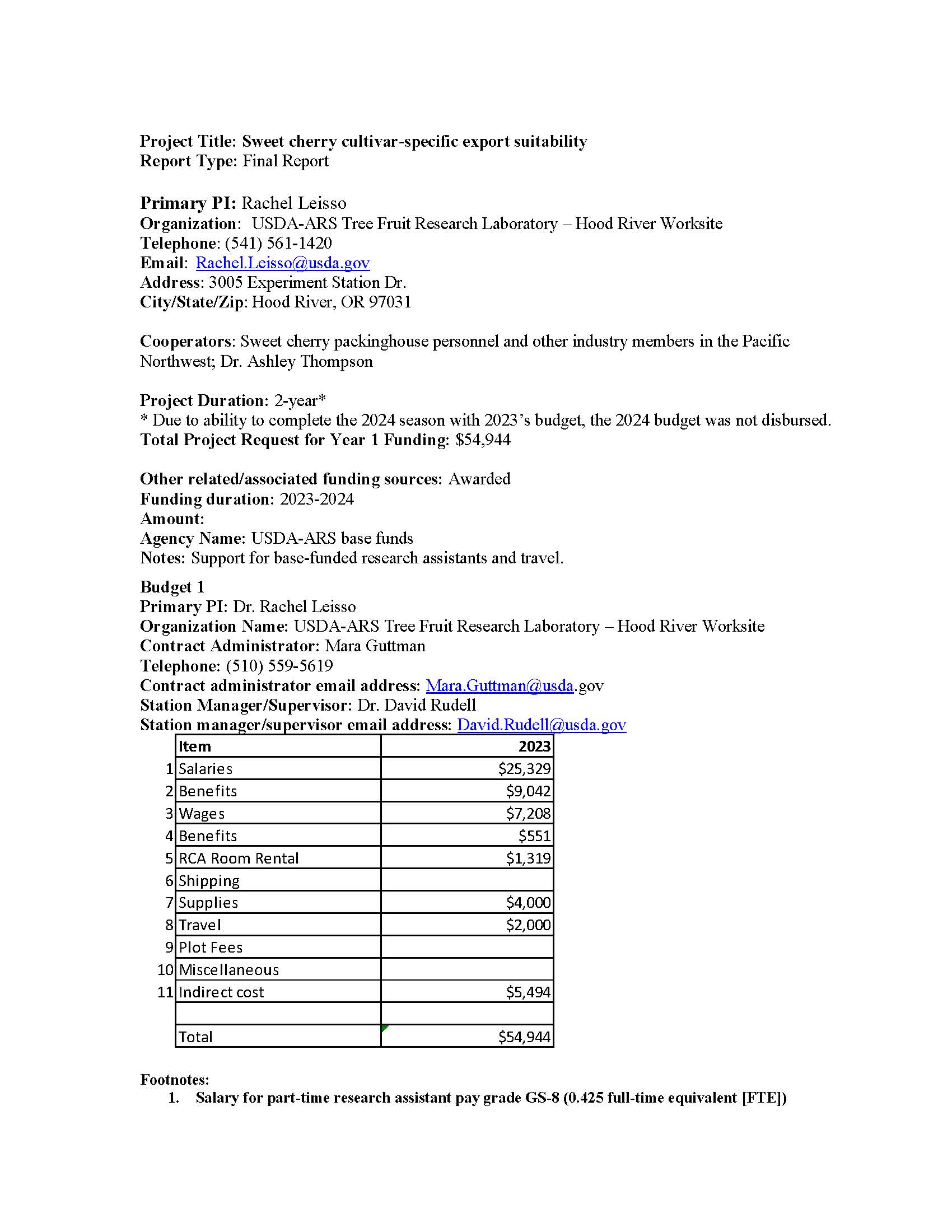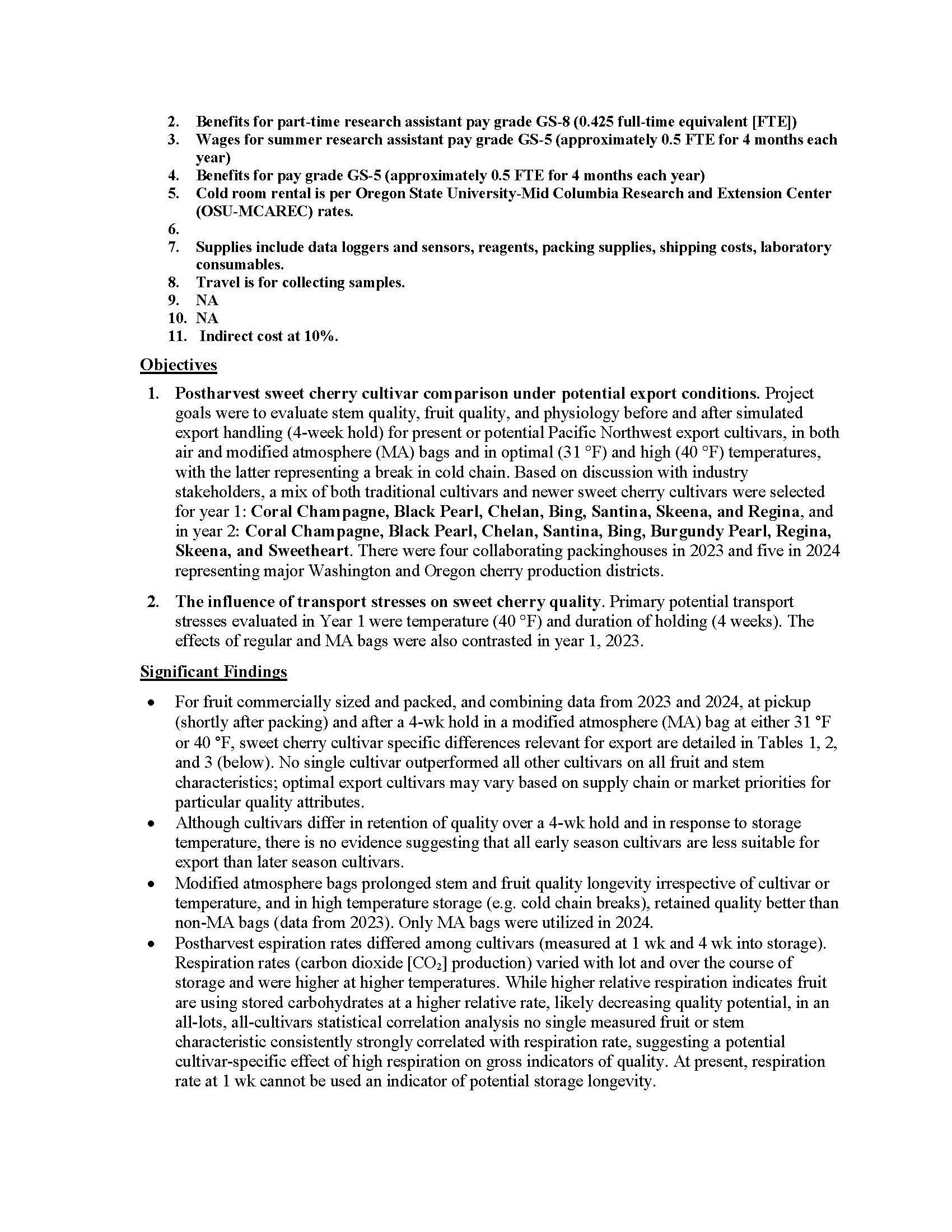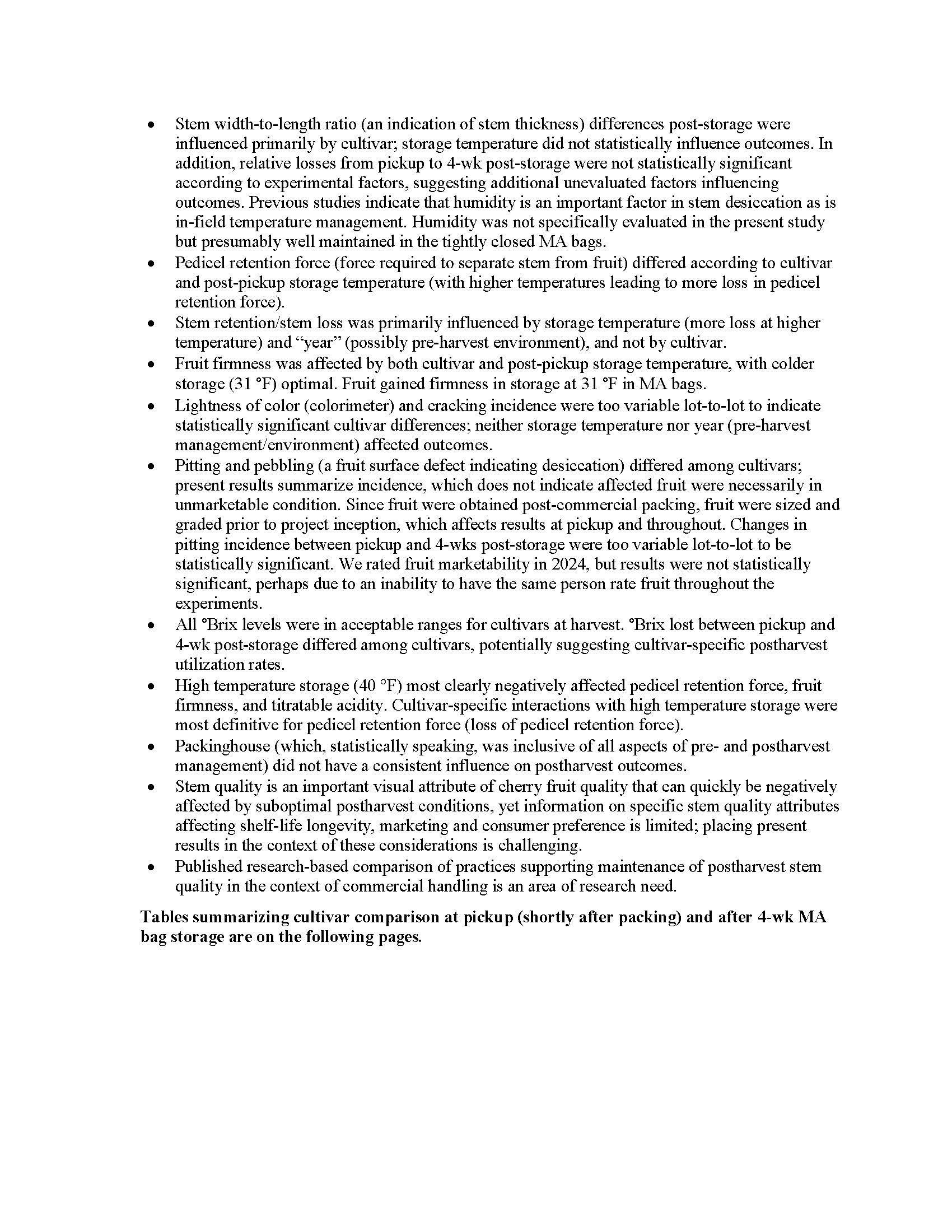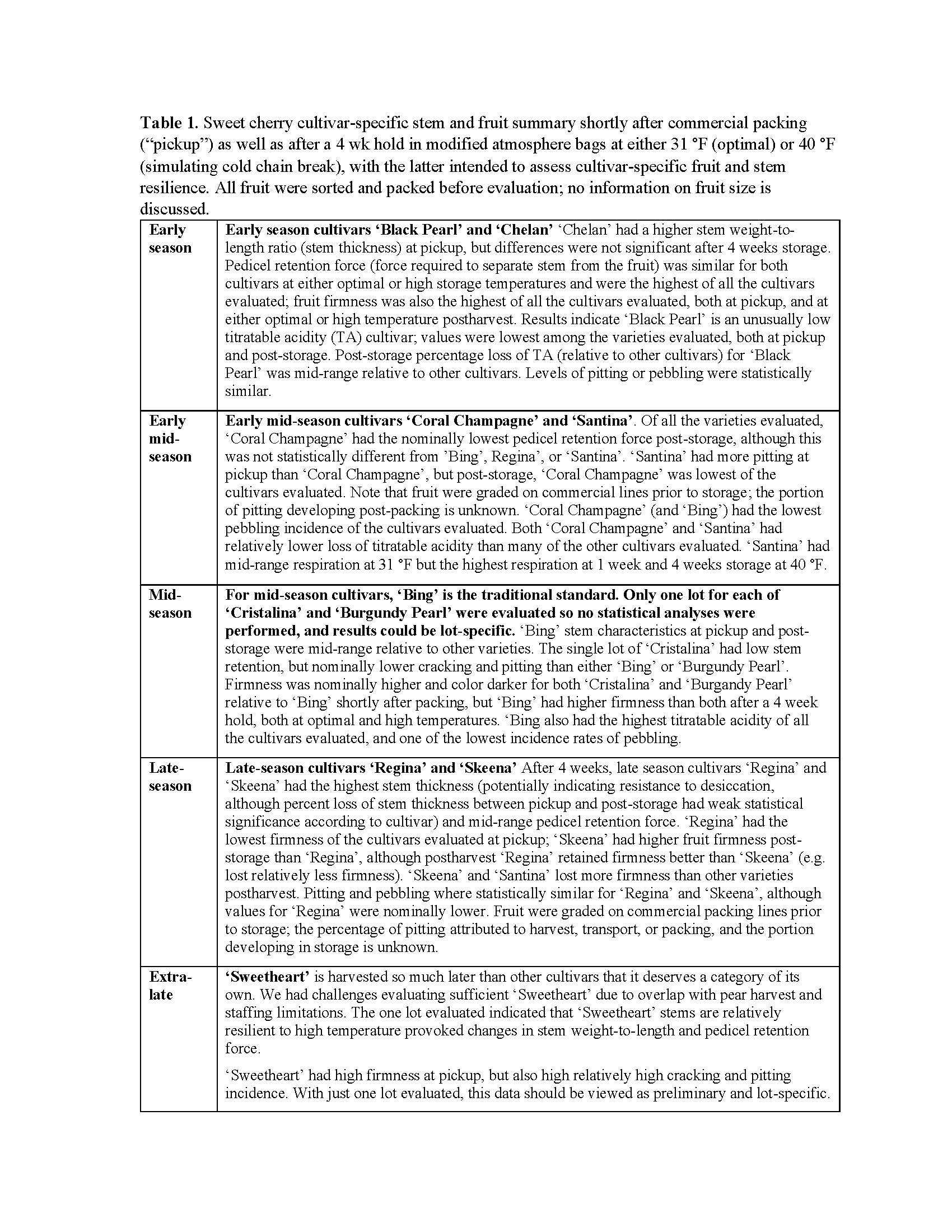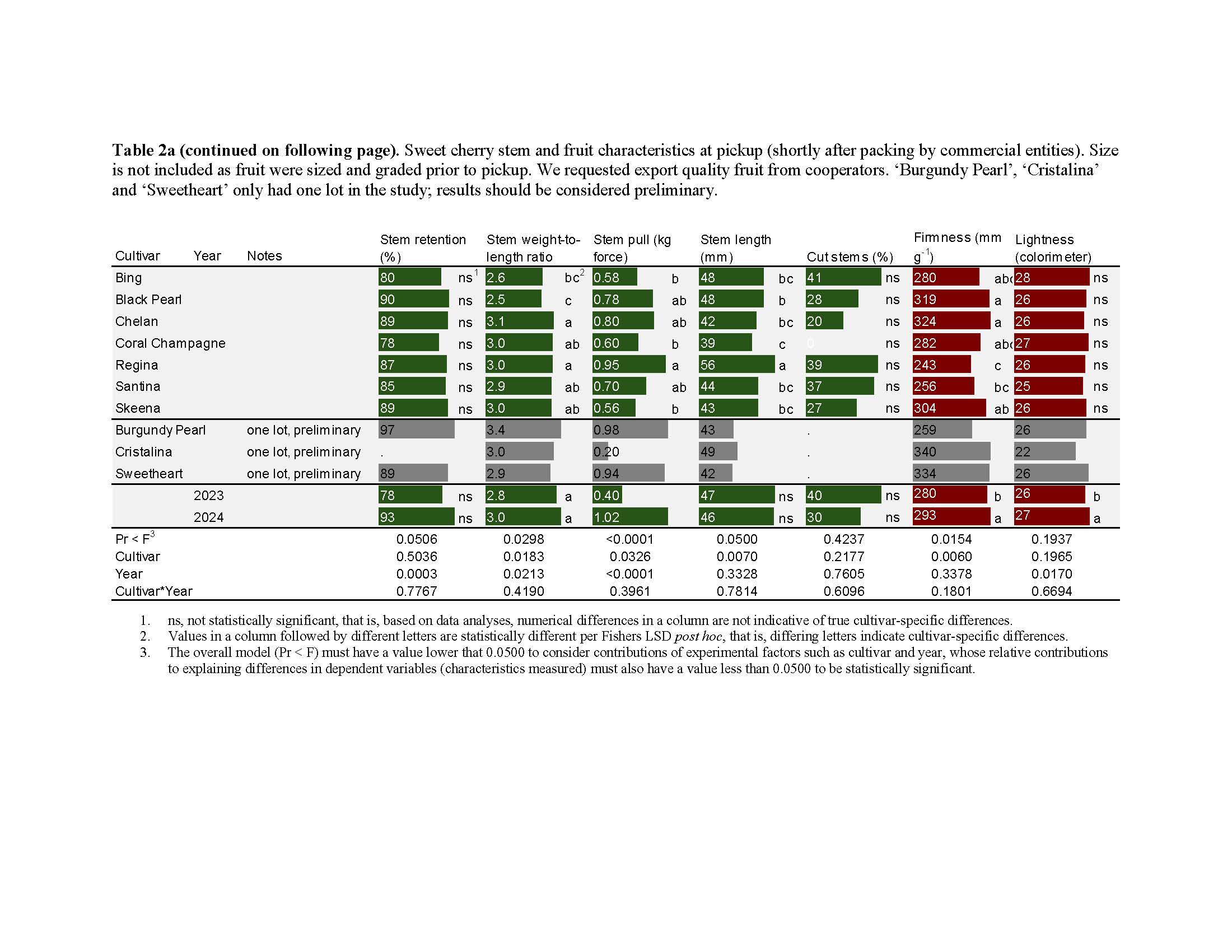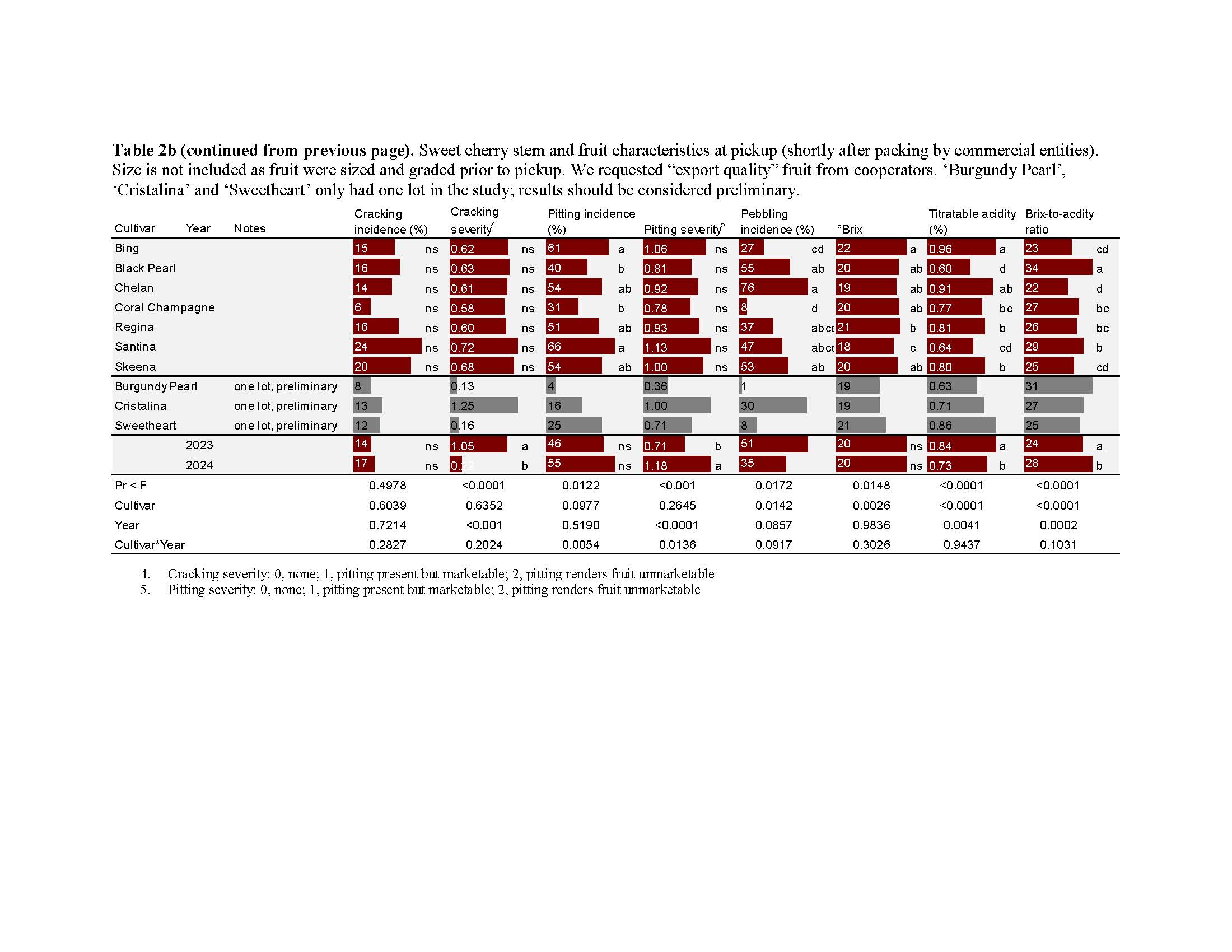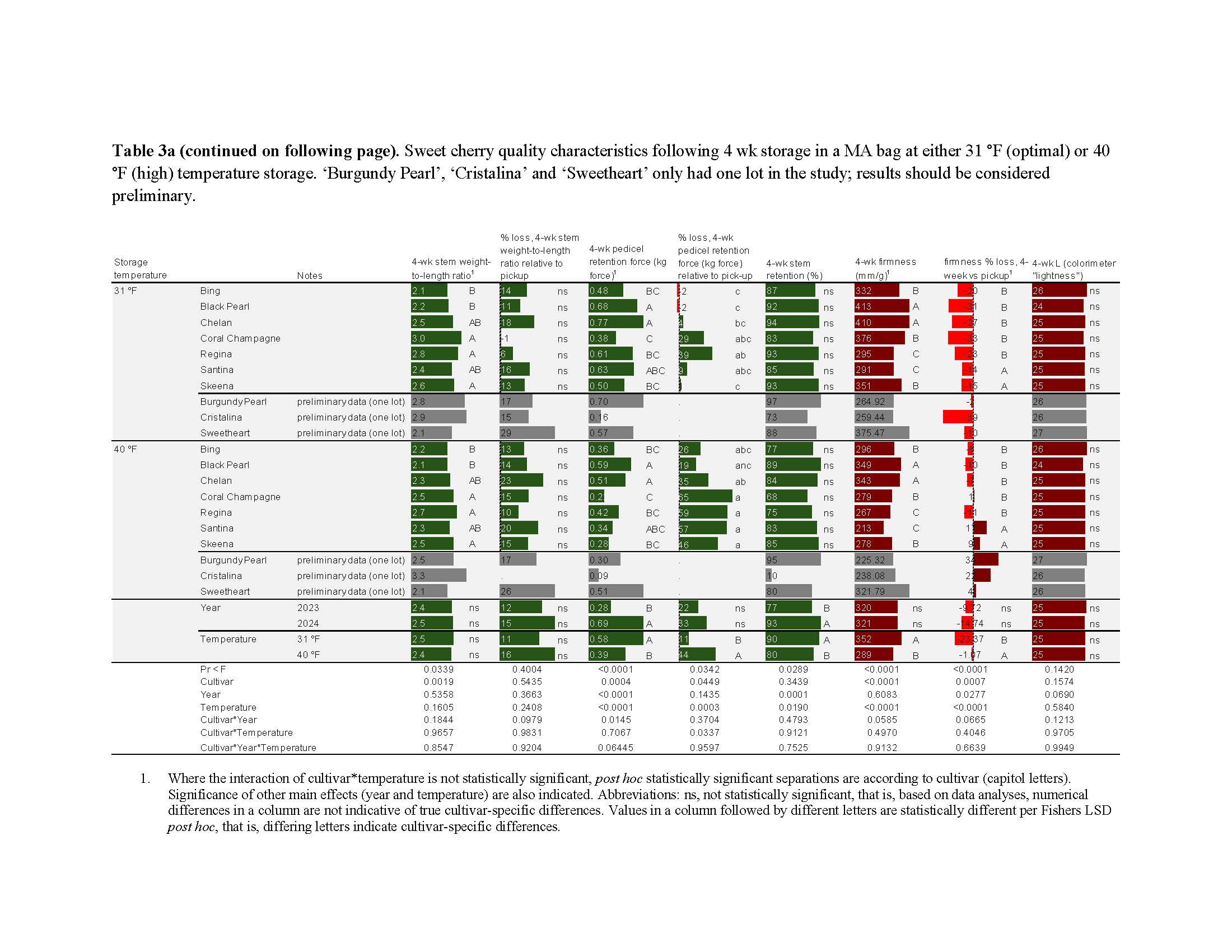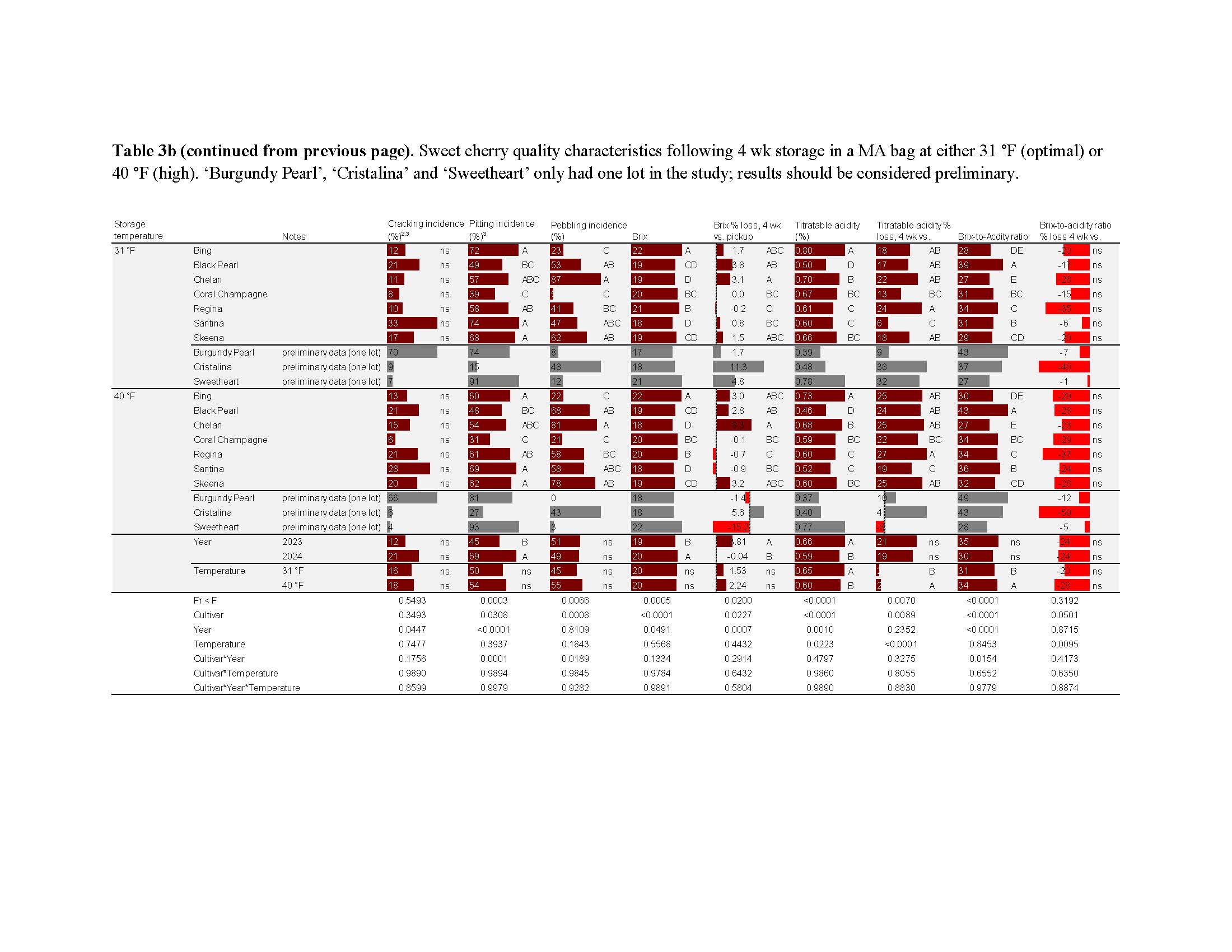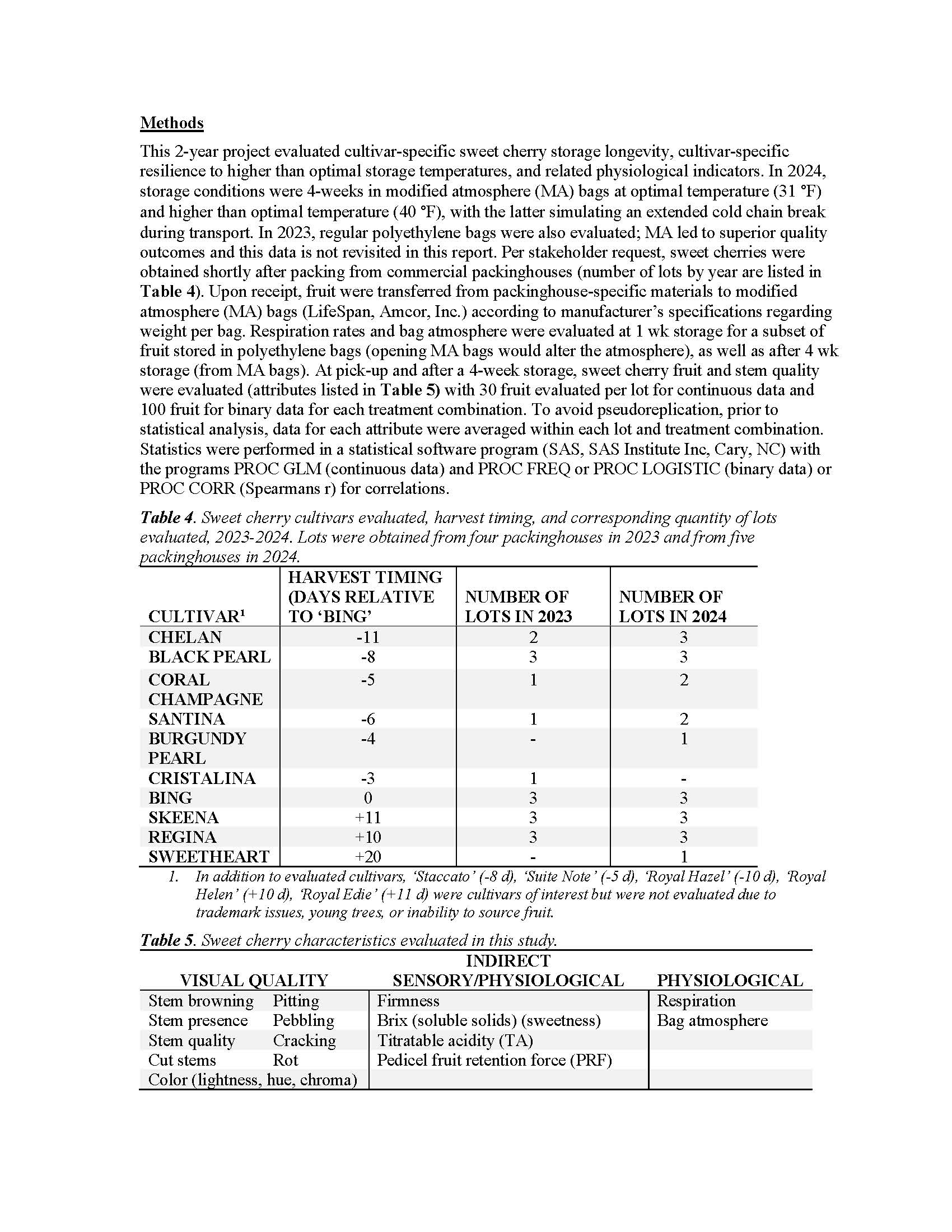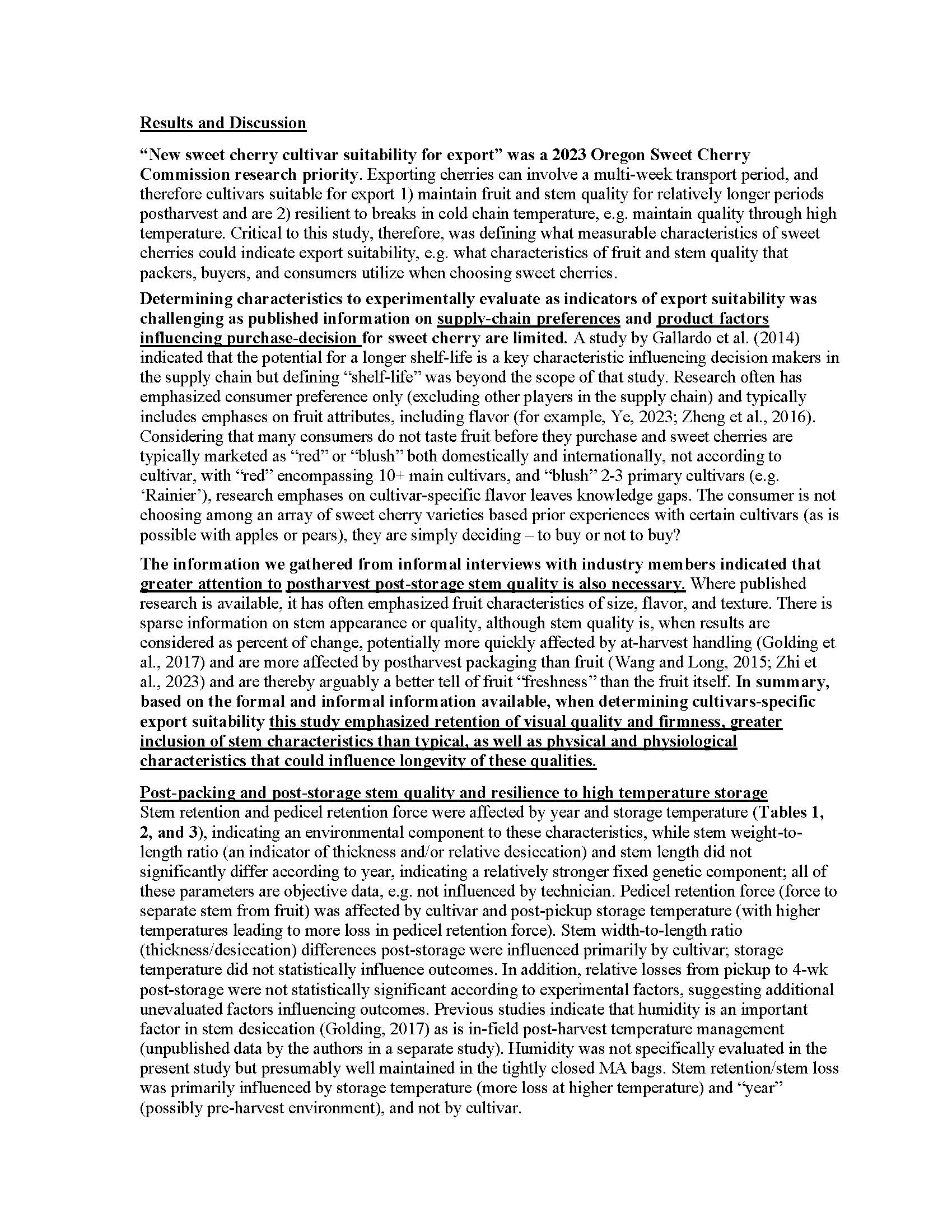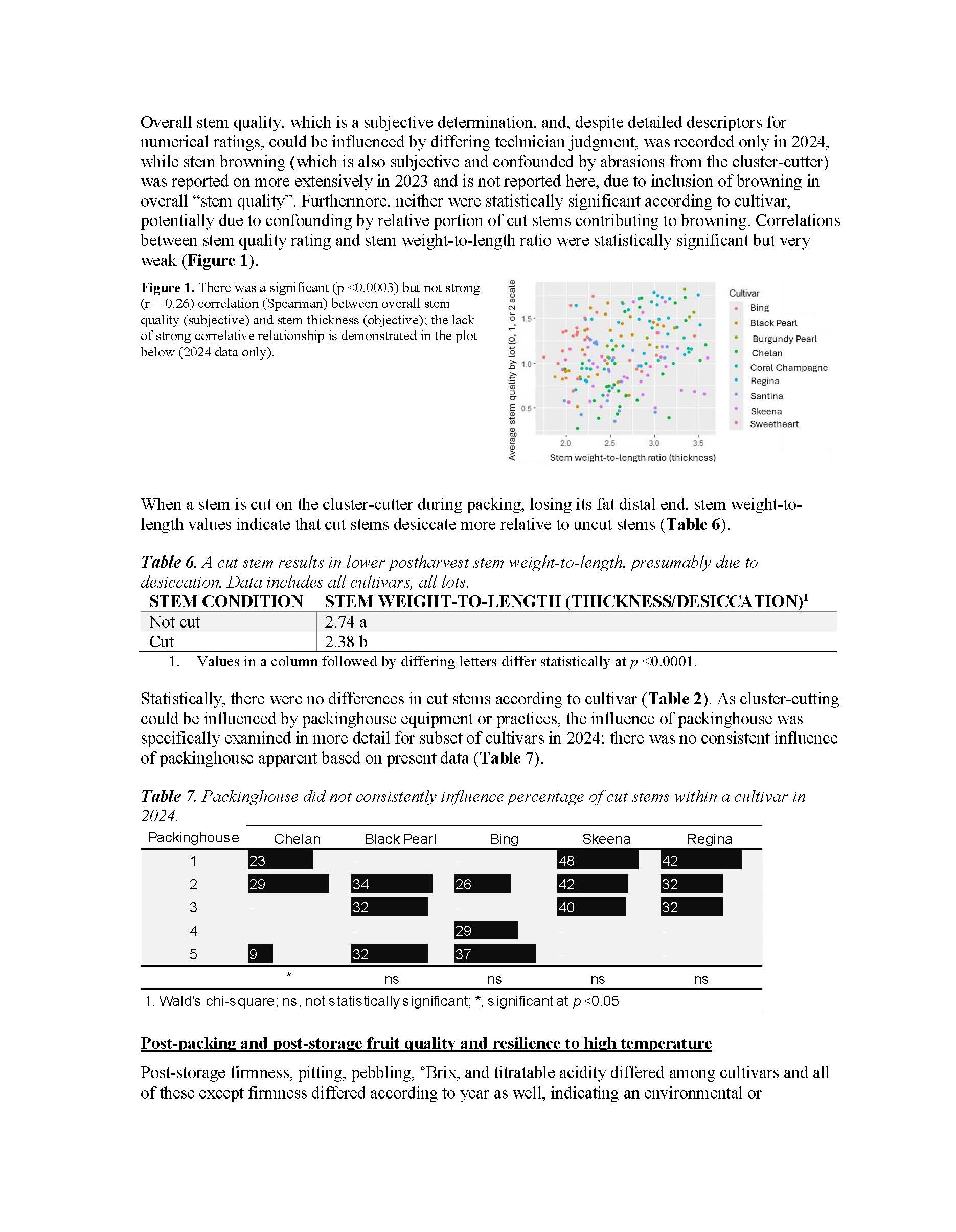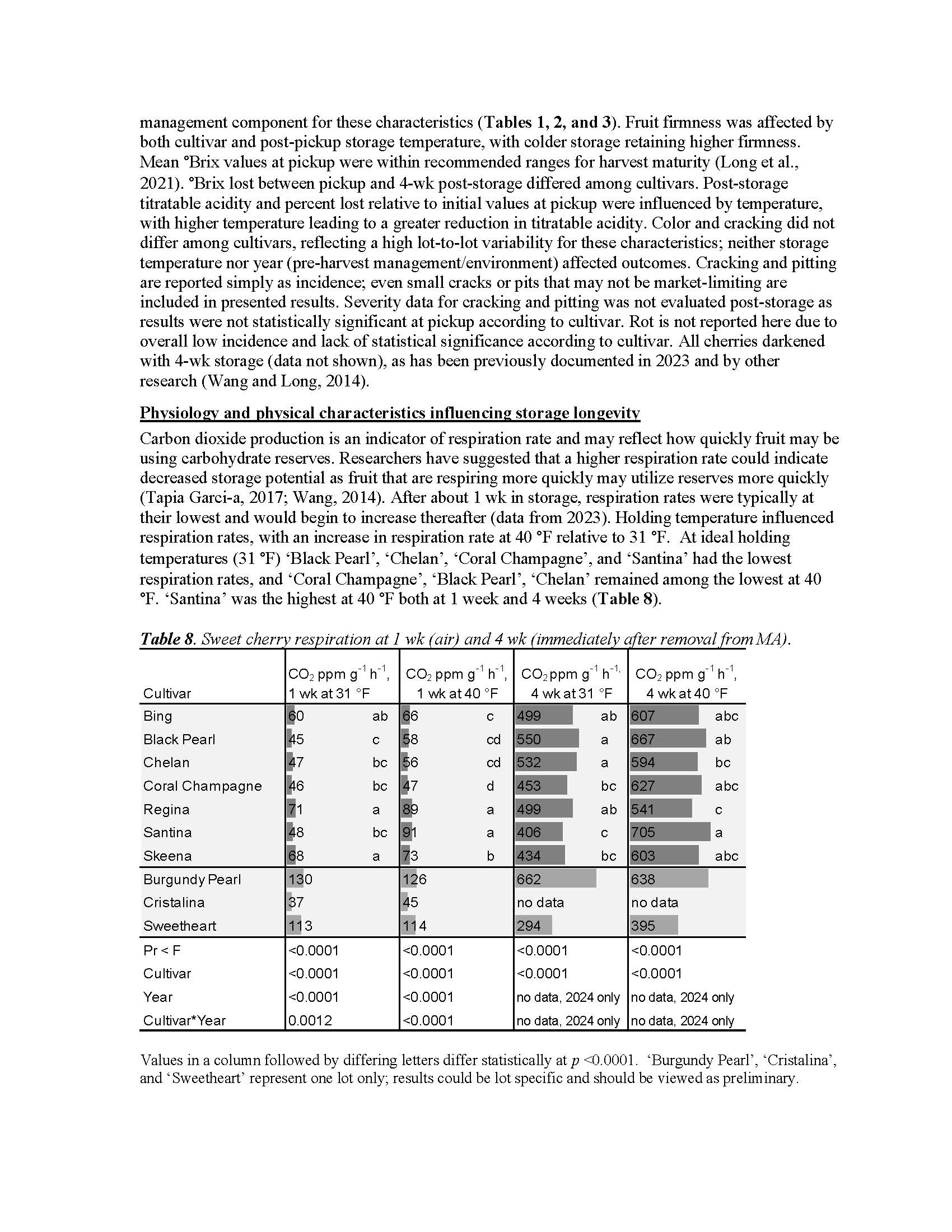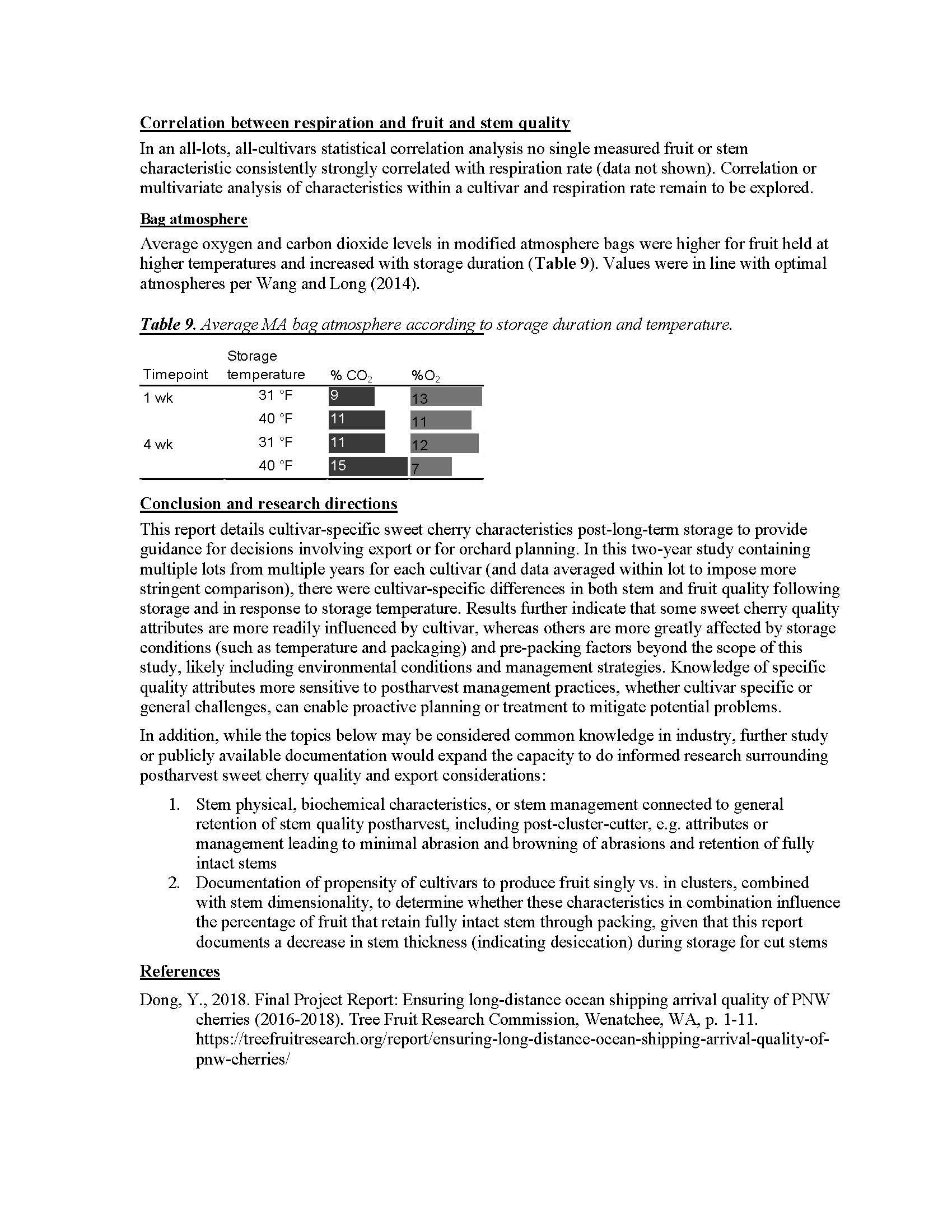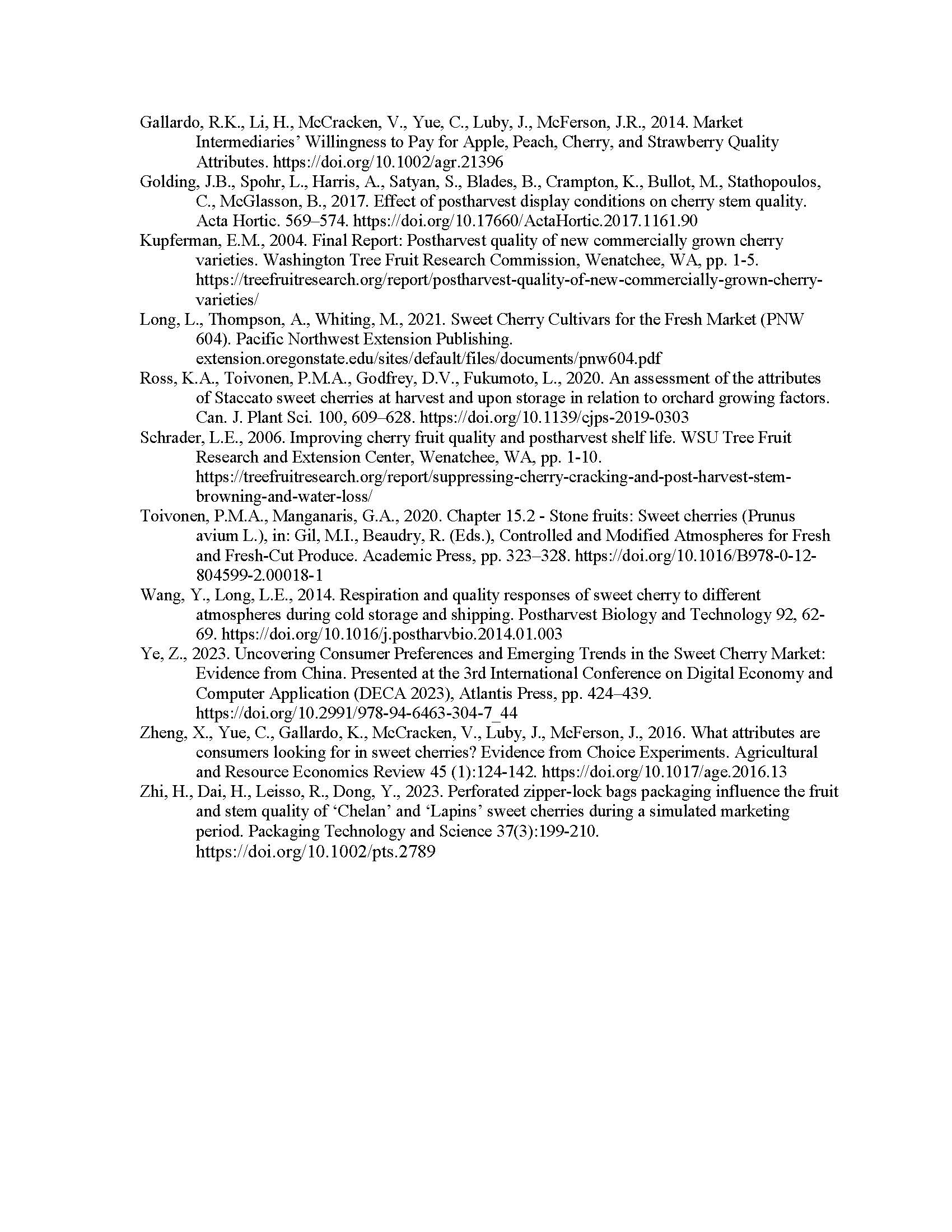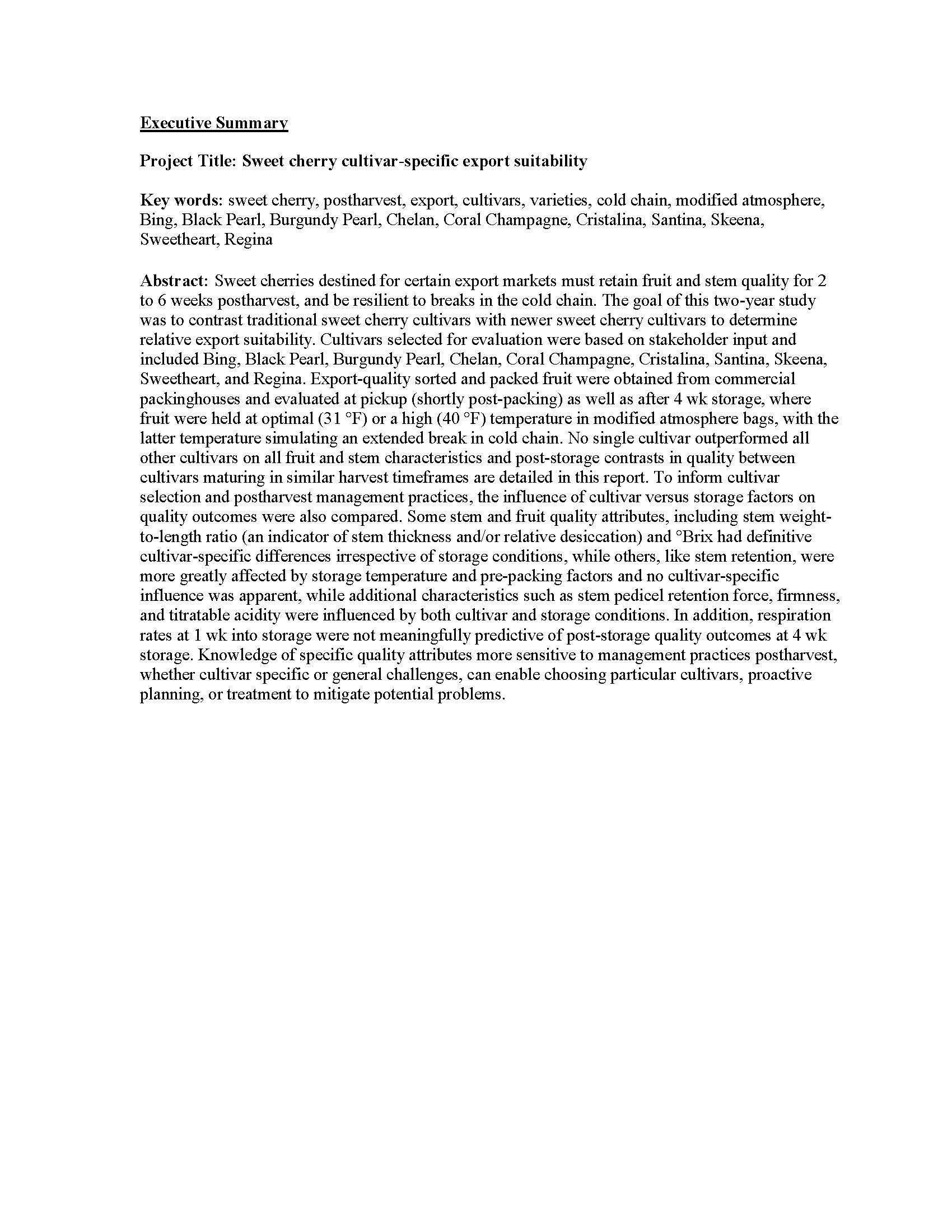Sweet cherry cultivar-specific export suitability
Author: Rachel Leisso
Published: 2025
Summary: Sweet cherries destined for certain export markets must retain fruit and stem quality for 2 to 6 weeks postharvest, and be resilient to breaks in the cold chain. The goal of this two-year study was to contrast traditional sweet cherry cultivars with newer sweet cherry cultivars to determine relative export suitability. Cultivars selected for evaluation were based on stakeholder input and included Bing, Black Pearl, Burgundy Pearl, Chelan, Coral Champagne, Cristalina, Santina, Skeena, Sweetheart, and Regina. Export-quality sorted and packed fruit were obtained from commercial packinghouses and evaluated at pickup (shortly post-packing) as well as after 4 wk storage, where fruit were held at optimal (31 °F) or a high (40 °F) temperature in modified atmosphere bags, with the latter temperature simulating an extended break in cold chain. No single cultivar outperformed all other cultivars on all fruit and stem characteristics and post-storage contrasts in quality between cultivars maturing in similar harvest timeframes are detailed in this report. To inform cultivar selection and postharvest management practices, the influence of cultivar versus storage factors on quality outcomes were also compared. Some stem and fruit quality attributes, including stem weight-to-length ratio (an indicator of stem thickness and/or relative desiccation) and °Brix had definitive cultivar-specific differences irrespective of storage conditions, while others, like stem retention, were more greatly affected by storage temperature and pre-packing factors and no cultivar-specific influence was apparent, while additional characteristics such as stem pedicel retention force, firmness, and titratable acidity were influenced by both cultivar and storage conditions. In addition, respiration rates at 1 wk into storage were not meaningfully predictive of post-storage quality outcomes at 4 wk storage. Knowledge of specific quality attributes more sensitive to management practices postharvest, whether cultivar specific or general challenges, can enable choosing particular cultivars, proactive planning, or treatment to mitigate potential problems.
Keywords:

